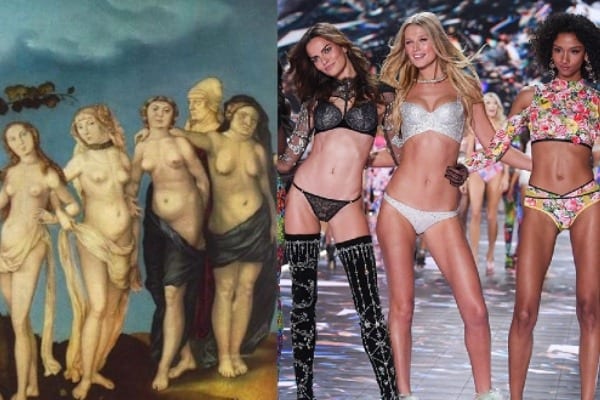Instagram’s public policy manager, Emma Collins said, “We want Instagram to be a positive place for everyone that uses it and this policy is part of our ongoing work to reduce the pressure that people can sometimes feel as a result of social media.”
Facebook and Instagram will also strip any content making “miraculous claims” about diet products linked to commercial offers.
Posts that have “an incentive to buy or includes a price” will be subject to restriction if users are under 18, while content that “makes a miraculous claim about certain diet or weight loss products, and is linked to a commercial offer such as a discount code” will be removed completely.
Will banning ineffective sensationalistic ads spruiking “detox” teas, lollipops, and other supplements work? Or it is just another futile attempt at controlling the uncontrollable?
Actress Jameela Jamil described the decision as a “huge win or our ongoing fight against the diet/detox industry.”
She’s an outspoken body positivity activist who was involved in the $100 billion company’s policy changes. She believes these new policies is proof the tech giants are “taking a stand to protect the physical and mental health of people online” and that it “sends an important message out to the world.”
Is it really a way to protect people’s mental wellbeing? To a certain degree, it may, but I suspect it’s just putting up a barrier between a consumer and supplier, that’s all.
In my opinion, a person who feels shit about their body is still likely to pursue means to remedy that. The devil ain’t necessarily as simply the diet and weight loss companies.
The fact that I was born before 2000 sits at the top of the long list of things I am grateful for in my life, because it means I didn’t have to grow up with Facebook, Instagram and Snapchat as permanent fixtures. I say this, in part, because I know my own constitution. I am naturally self-doubting.
But while I grew up free from the ubiquity of social media, I didn’t grow up in a complete cultural vacuum. I had the equivalent of today’s aesthetic-centric platforms; I read teenage magazines like Dolly, Girlfriend and Teen Vogue, and almost always finished with feelings of inadequacy: miserable about how far away I felt to any idea of ‘prettiness’ as manifested through those pages.
For one, I never once saw anyone who looked anything like me, as in a woman of Asian heritage.
But probably the biggest impact those magazines had on me was the implicit understanding that, as a woman, I had to be appealing. I understood that this was something that the world would require of me. I doubt I am – or was – alone in this regard.
Instagram is a platform that’s practically guaranteed to make even the most secure women feel some degree of self doubt.
“We do know that the more time young people spend on social media, the more likely they are to have issues around their body image and disordered eating issues,” Melissa Wilson, Head of Communications and Engagement at The Butterfly Foundation for Eating Disorders, told Triple J’s HACK. “We know that weight loss programs are often a precursor and often a risk factor for eating disorders.”
She said The Butterfly Foundation is all for the change.
“A 2016 study of adults in the U.S aged 19 – 32 found that high use of social media is linked to an increased risk of body image concerns and eating disorders. Social media use could also be connected to body dysmorphic disorder, where an individual is obsessed with parts of their bodies and how they appear to other people, or you feel a part of your body is unusual or deformed, so that you feel ashamed, distressed or depressed. Latest study reported prevalence rate in Australia of approximately 2.3%. “
Is combating this as simple as “standing up for our bodies and their right to be cared for,” as Sarah Berry suggests in the SMH?
What does ‘standing up’ for my body actually look like? I fear wanting women and girls to feel no shame about their bodies requires undoing our cultural reprogramming.
Less scrolling is almost guaranteed to help.
“If social media has become harmful to your self-esteem (or is affecting your teenager), it’s vital to reduce the amount of time you spend scrolling, or to begin to curate a different online experience by following accounts that make you feel good about yourself and unfollowing influencers who promote unrealistic standards of beauty,” Cara Rosenbloom writes in The Washington Post.


